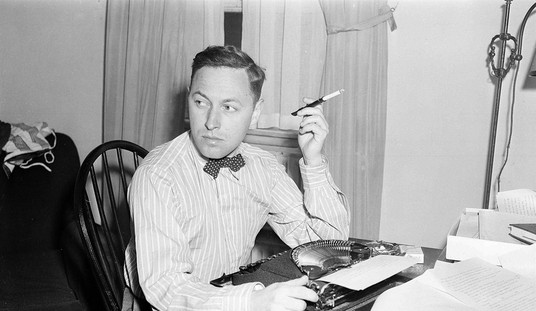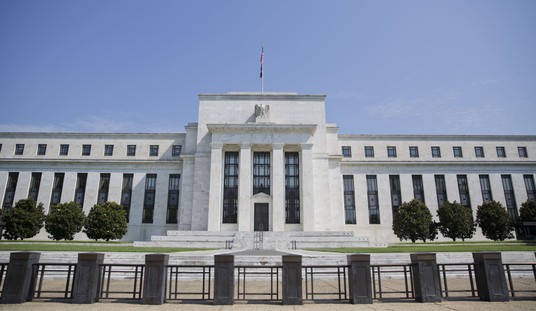Czech journalist Milan Vodicka explains in a guest editorial in the NYT why he is skeptical about Barack Obama’s plan to rid the world of nuclear weapons.
Seriously, I don’t mean to suggest that we should just drop the idea of disarmament; I merely have some practical objections. … Nuclear weapons, whether used by terrorists or nuts, are actually the greatest threat to civilization today. No one knows what to do about them. Ronald Reagan wanted to eliminate them. George W. Bush wanted to take preventive action by locking up every potential suspect. President Obama wants to pull the nuclear carpet out from underfoot.
But we should keep certain facts in mind. The Cold War didn’t escalate into a hot one because there were nuclear weapons and the certainty of mutual destruction. Yes, we live in a different era. But what will happen when someone secretly builds a bomb? Will that person rule the world? What will others do?
The problem with guaranteeing universal disarmament is this: the only arsenal any nation has complete and certain knowledge of is its own. Technical surveillance, UN inspections and assessments can provide some information on the armaments of other countries. But in the last analysis, the only country that Barack Obama can strip of nuclear weapons with complete certainty is the United States. So any attempt to get to Zero Weapons runs up against the information horizon problem. You can only add up what you know. The fact that your arsenal is at Zero and every other country reports Zero doesn’t necessarily mean you’re there.
In those long ago graduate school seminars on deterrence I remember in particular the talks on the “stability of deterrence”. With nuclear weapons less is not necessarily better. At a stable level of deterrence all parties refrain from war out of the knowledge of certain destruction. Facing guaranteed obliteration, the theory was that no rational aggressor could conceive of “winning” in any meaningful sense, and peace was preserved. But if nuclear weapons were progressively reduced ceteris paribus, then counterintuively one could theoretically reach a point when the prospect of destruction was no longer certain. Then, a sufficiently aggressive enemy might take the chance of initiating a war, even one involving a nuclear weapons, on the calculation that he could survive the effects and “win” in some meaningful sense.
One of the reasons that large scale conventional warfare disappeared from 1945 onward was the fear that it could escalate into an all-out nuclear exchange. Vast armies simply could not clash in the shadow of the bomb. The Strategic Air Command’s motto that “peace is our profession” was not, as some imagined, a statement of military idiocy, but the condensed expression of the paradox of deterrence, one which Joni Mitchell missed when she wrote “and I dreamed I saw the bombers riding shotgun in the sky, turning into butterflies above our nation.” Had they turned into butterflies at that instant, the last sight of the crowd at Yasgur’s Farm might well have been the incoming re-entry streaks of Soviet ICBMs.
In the paralyzing shadow of nuclear weapons the only warfare possible was a series of limited proxy conflicts we remember as the Cold War; vast, destructive, brutal, prolonged; yet for all its defects not a repetition of the carnage of 1939-45. Today we live at the edge of that world on the verge of another. It is a world where the know-how to create atomic bombs has become, or will soon become, nearly universal. It is also a world where deterrent predecessors of nukes — armies of millions which were commonplace seventy years ago — no longer exist. Nukes abolished standing armies. When we abolish the nukes, what remains? International law? In that world, was does building down to Zero imply?
There was probably only one point in the last sixty three years when the world was truly at Zero, when Fat Man detonated over Nagasaki. At that moment, the US was out of bombs and the world nuclear stockpile was at Zero. Japan surrendered in the mistaken belief that Truman had more — and in a way he did because while knowledge to create the Bomb exists, even Zero wavers under the ghost of the nukes only a manufacturing lead time away. America had nukes even when it didn’t have them. In a world where the knowledge to build atomic bombs is nearly universal, everyone will have them to some degree, even when they don’t. How would a US administration respond, for example, on the Day After Zero, if Kim Jong Il’s successor suddenly announced that he had kept some back? Or that North Korea would resume building them unless provided with money? Would the “International Community” enforce Zero by conventional warfare? Would they risk putting large conventional forces in the field against a country possessing one or two A-bombs? Or would countries under threat initiate a rebuild plan of their own? Japan is widely believed to have the capability to build weapons very quickly. Will the precurors to weapons be outlawed too and how far back? Those are some of the questions Vodica asks and which Barack Obama has not yet answered. The Czech journalist ends by wondering whether the devil we know isn’t better than the devil we don’t.
I know why Barack Obama chose Prague as the place to present his vision of a world without nuclear weapons. It’s the capital of a country where wars have begun and ended, from the Thirty Years War to World War II. And Mr. Obama is right when he says that one nuclear weapon detonated in one city, whether New York or Prague, could kill hundreds of thousands of people. And he is correct when he says that people are entitled to live without fear.
So I’m crossing my fingers that President Obama will succeed. But living in Prague — the city where great wars have begun and ended — has taught me to feel safer with nuclear weapons than without them.
“Safer” is a relative term. We were never completely safe during the Cold War, just “safer” or perhaps ‘luckier’. I wonder whether, despite BHO’s vision, we can ever truly be safe from ourselves.










Join the conversation as a VIP Member